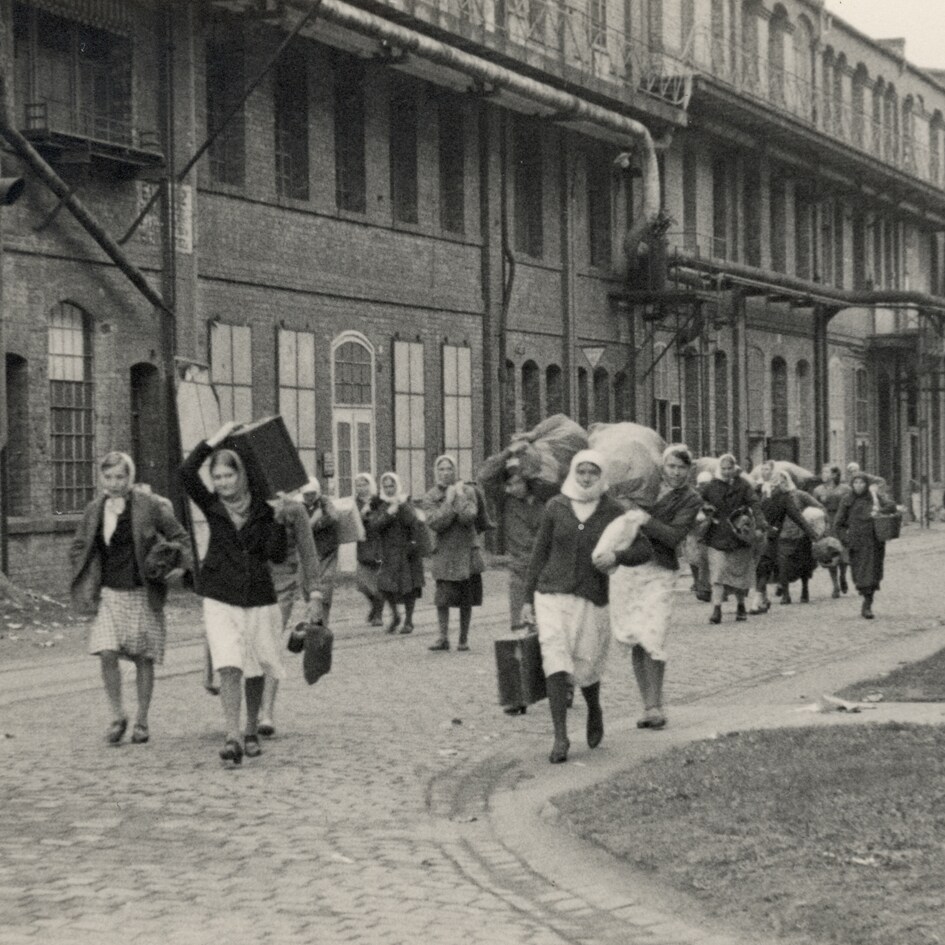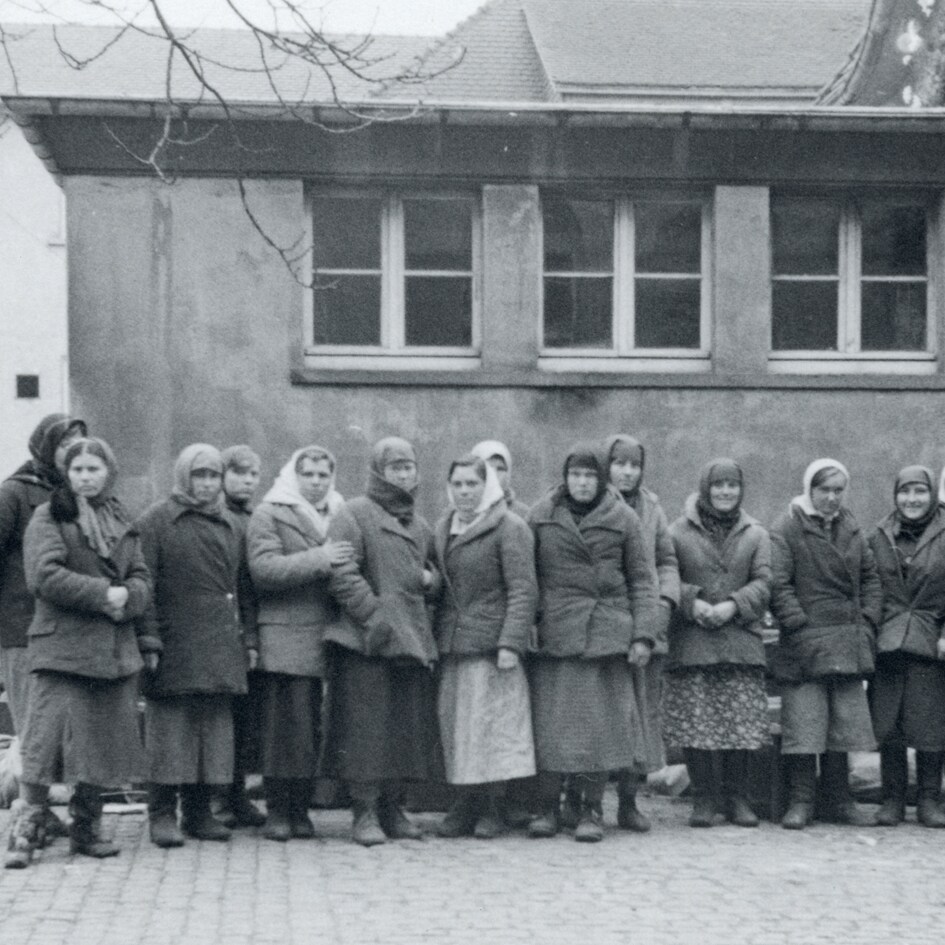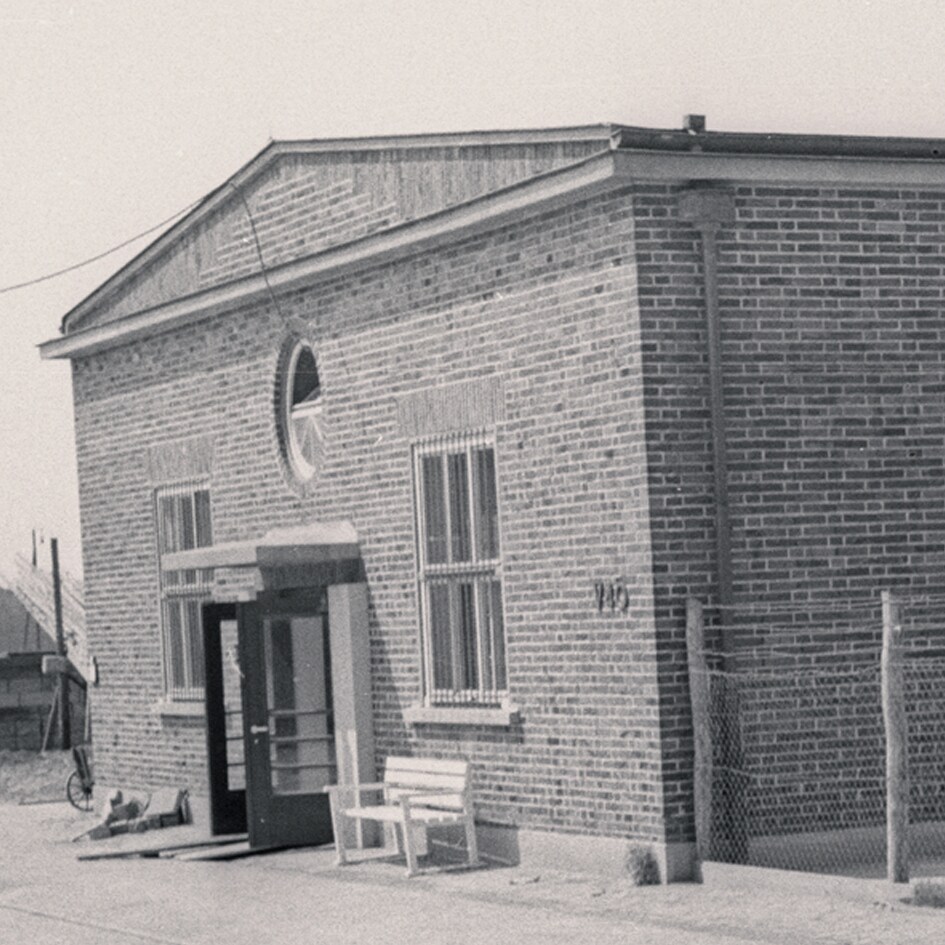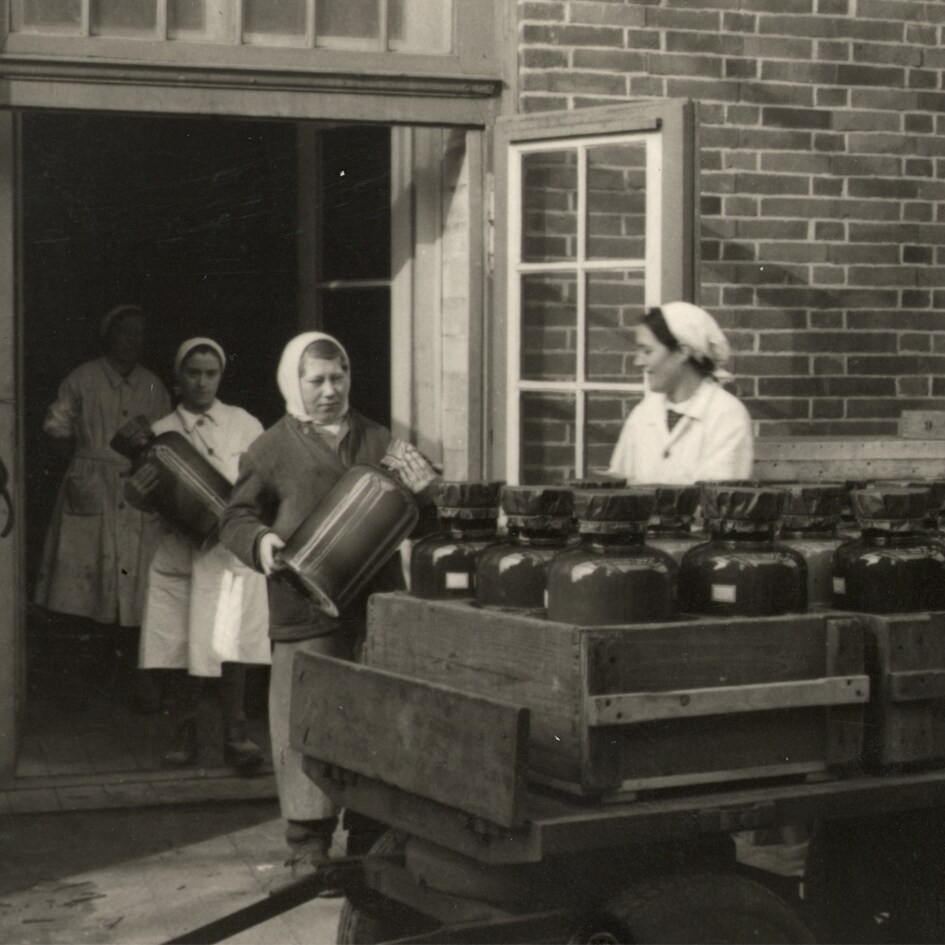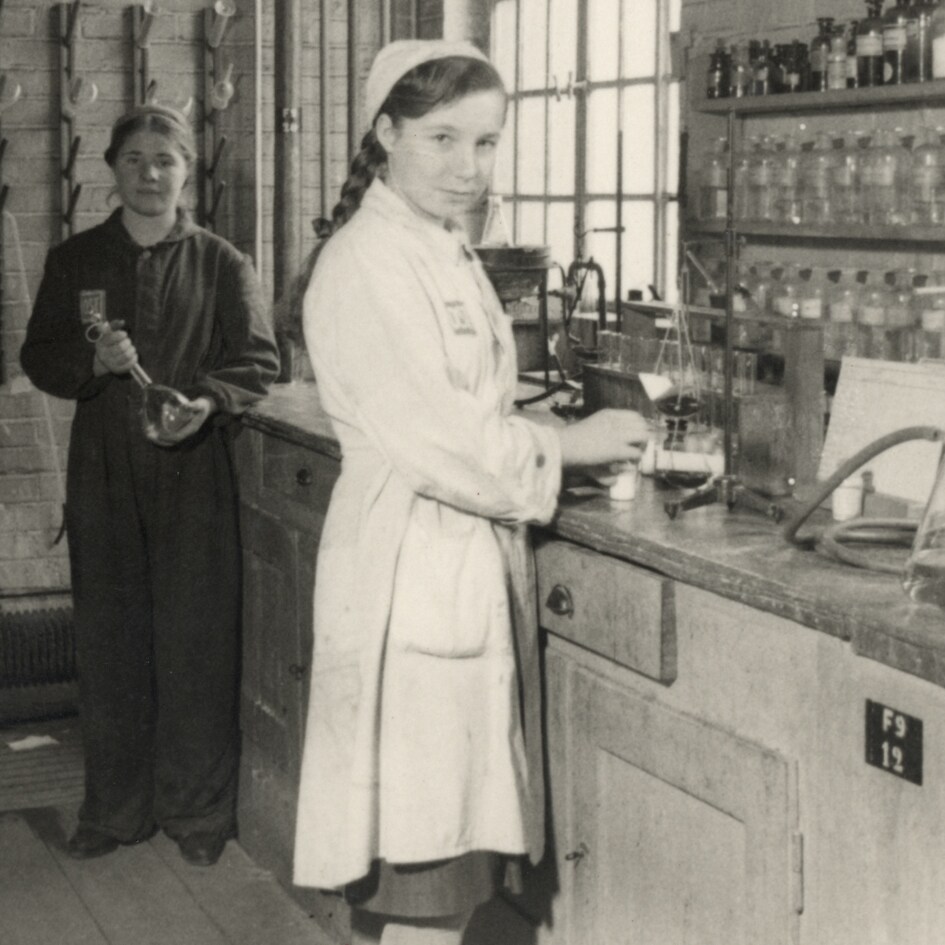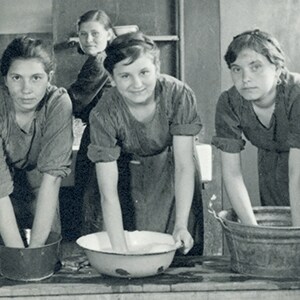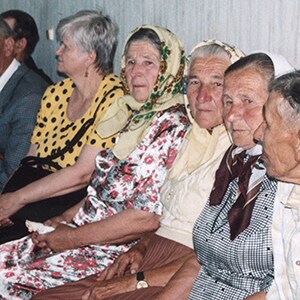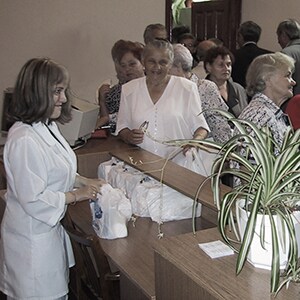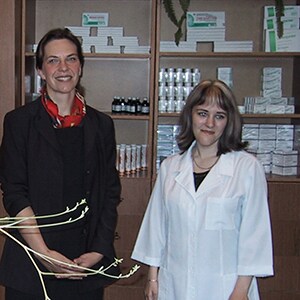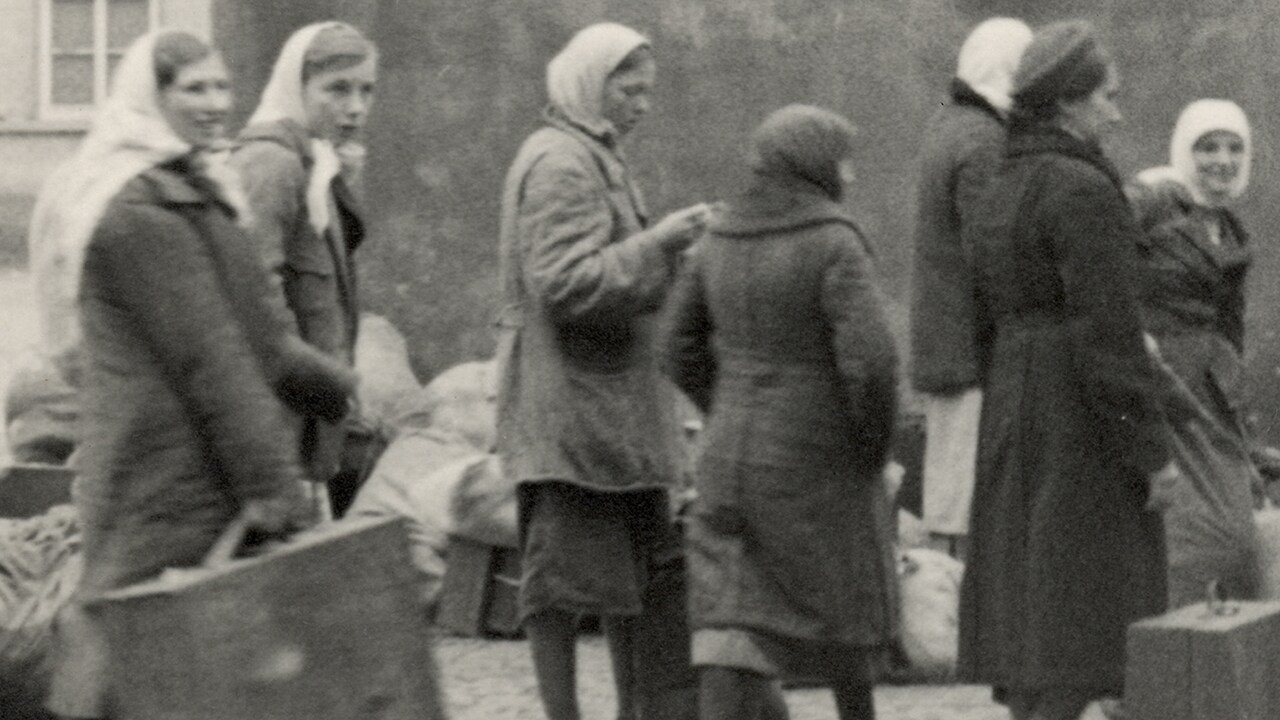
»In the laboratories, some of the drafted workers and laboratory technicians were replaced by Russian girls […]. They proved to be excellent workers…«
Otto Zima, looking back at company research, 1958
Since the start of World War II in 1939, the drafting of men into the armed forces and the lack of workers are increasingly a worry. Like other companies, E. Merck, Darmstadt, Germany, has no choice but to accept the system of forced labor. In 1942, 257 forced laborers are allocated to the company, mainly women forcibly displaced from Russia and Ukraine.
The »women workers from the East« are assigned to many different areas: the vitamin departments or pesticide production, packing and weighing, the laboratory, the company cafeteria, laundry and transport services. At the end of the 1990s, detailed research on the subject in the company Archives begins. The fate of these forced laborers becomes transparent, tangible and »personal«. The company joins the Remembrance, Responsibility and Future Foundation, an initiative launched by German industry. A total of 68 individuals who can be identified as having worked at the company site in Darmstadt receive personal compensation. And the Belarus Pharmacy Project is launched.
The collaboration between the company, the Protestant Church of Hesse and Nassau and the Foundation of the Belarusian People’s Republic for Understanding and Reconciliation begins in 1999. The aim of the joint project is to improve access to medical care in Belarus. The immediate goal is to begin providing socio-medical care on a small scale, and ultimately to achieve lasting improvement of the inadequate pharmaceutical supply in the politically difficult country.
Basic medical care is government-sponsored and provided free of charge. In reality, however, important medicines can only be obtained by paying U.S. dollars in cash; many are not available at all. Pharmacies are to be set up where people registered with the Foundation as former detainees in a concentration camp, ghetto or prison or as former forced laborers can obtain medicines free of charge. They are opened in Vitebsk, Minskand Brest. A pharmacist and a physician administer the issuance of medicines.
Patients receive a list of available medicines to present to their physicians. The patients travel long distances to pick up their medicines from the pharmacies. From 2001 to 2008, medicines with a total value of € 170,000 are donated. The preparatory negotiations give some indication of the extent to which humanitarian aid suffers under the complexity of the state, and how much it depends on the decisions of various government committees. In 2008, the project must be terminated due to the difficult political situation.
Forced laborers from eastern Europe arrive in Darmstadt in 1942. While »Western workers« are given accommodation in apartments or guest houses and are largely free to move about as they wish, Site Security is responsible for guarding the »Eastern workers«. The female forced laborers, most of them young, are housed in fenced-off »Russian barracks«.
The »Eastern workers« perform not only simple tasks in the cafeteria, laundry, production, transport services, but also take on work in the laboratories and »after only a few weeks could independently perform titrations, calculate analyses, and even keep laboratory journals in German«.
Within the framework of the Belarus Pharmacy Project, medicines are distributed free of charge at three pharmacies in Minsk, Vitebsk and Brest, also to former forced laborers. A representative of Merck KGaA, Darmstadt, Germany, and pharmacist Elena Schapovalova (pictured right) at the opening of the pharmacy in Brest.

